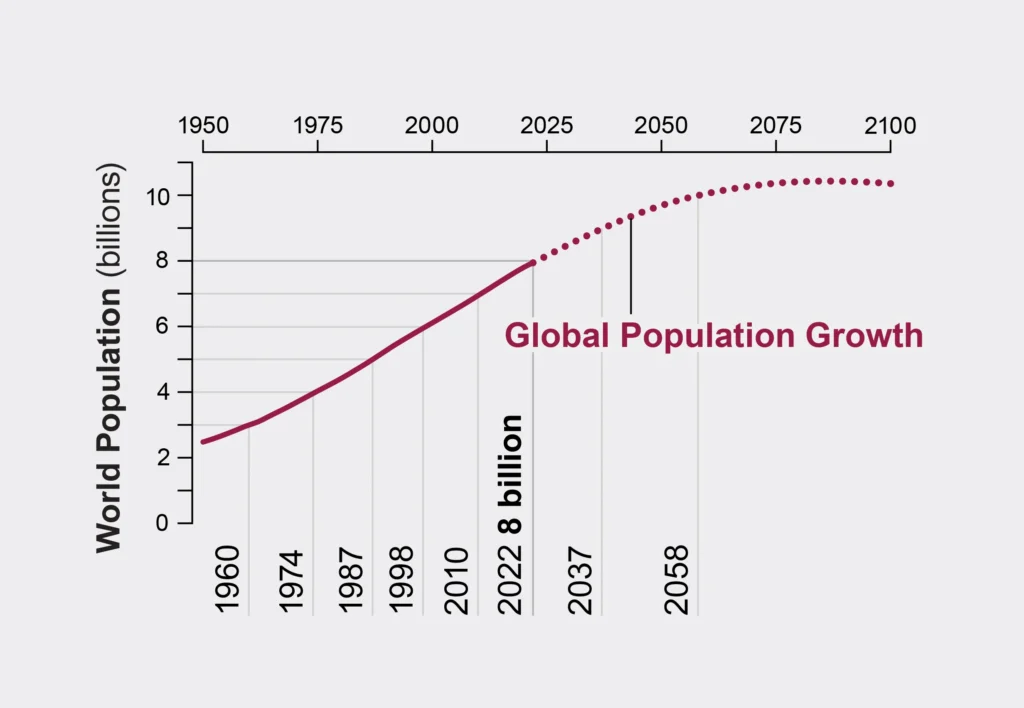In 2020 Keir Starmer commissioned an investigation into antisemitism, racism, sexism, and bullying in the wake of a leaked document containing private WhatsApp messages exposing an insidious racist environment fostered by senior Labour Party workers.
The Forde report exposes a hierarchy of racism denied by the Labour leadership. It came out to a tsunami of Labour PR approved tweets. Their response effectively was ‘the report says the party was out of control. Keir is now in control and everything is going to be ok now because he’s getting rid of those people’.
However, racism in the Labour Party predates both the current and last Labour leader.
Starmer: framing himself as president
As former director of public prosecutions, Keir Starmer has a legacy of fast trials and night courts rigging the system so that Black and brown people served longer sentences after the England-wide riots in 2011. Thus the current leader of the Labour Party is finding it difficult to appease those he marginalised both at that time and now, as the left of the party accuses him of purges.
Hardly a far fetched claim when Labour has lost nearly 100,000 members since he took the helm of the party.
More troubling still, Labour has only ever elected leaders who are white and male. Four of the last five have heralded from Islington.
With the Tory party stumbling early on and never quite getting off its knees, it has become a one-sided general election campaign race. Under little pressure Keir Starmer has increasingly framed himself as president (there were 33 photos of him in Labour’s 131 page manifesto), rather than prime minister.
The manifesto released mid-June would introduce legislation for its New Deal for Working People within 100 days of taking office.
Scandal one
What looked like the first big scandal in the campaign came five days later via an exclusive report by Nadine White in the Independent that David Evans, Luke Akehurst, and Starmer himself had threatened legal or professional action against the author of the report Martin Forde KC.
This was because he was “acting against the party’s interest” having given an interview to Al Jazeera English in March 2023, highlighting Labour’s failures in relation to acting comprehensively on the report’s recommendations or even being willing to discuss them with him.
Yet Starmer’s attempted suppression of the report and its author hasn’t caused widespread condemnation, other than from a few ex-Labour Party members such as author and columnist Owen Jones who has unsurprisingly used it to rustle up votes for the Green Party he now supports.
There has been little reporting in the press and seemingly not made him miss a step. It would almost be preferable if the Forde report WAS used as a political football. The quiet is unsettling.
Days after this news came about, another bombshell hit.
Clacton: handing it to Farage or the Tories?
According to African, Caribbean, and Asian Lawyers for Justice the Labour Party has thrown its Clacton candidate Jovan Owusu-Nepaul who has said he is running against the Reform candidate “for every Black and brown person in the country” to the wolves for opposing Nigel Farage in uncompromising anti-racist terms. The group said:
Jovan faced the kind of horrendous racism last seen in the 1950s on the campaign trail. We suspect he may not have received the support he was expecting from the Labour Party. Inundated with racism-hostile media and a Labour Party whose anti-racism is cosmetic, he is in shock…
They selected him, and then when the Farage machine turned up and his stance was resolutely and authentically anti-racist, they abandoned him.
Former editor-in-chief of Britain’s only Black national newspaper the Voice, Lester Holloway, followed up, saying:
Jovan is calling out Farage because Starmer isn’t. We need to see leadership from the next PM or we all catch hell, especially Black and Asian people.
A supporter of Jovan and Labour Party member, who has campaigned for him in Clacton, told me that:
we need to embarrass HQ to turn his Contact Creator back on!! it’s so appalling on so many levels.
Speaking to PoliticsHome about his candidacy post-Farage’s decision to run, Jovan said:
My grandparents who came to this country in the 40s and 50s, who had to deal with ‘no dogs, no Blacks, no Irish’, and so many other people like myself who came here with that level of racism – it felt like all of that history had culminated to this fight.
According to a report on Wednesday 26 June:
Jovan was told [by an official] to never come back to Clacton, and yesterday, was instructed to move to the West Midlands region.
So for him that fight for a couple of days seemed over until this breaking news tweet from the Guardian’s deputy political editor on Thursday 27 June:
This is a clear turnaround from Starmer, no doubt enabled by the thousands of outraged exhortations from voters enraged over the party’s capitulation to Farage and his far-right movement in Clacton and beyond.
Whether the leadership put resources behind Jovan Owusu-Nepaul, send their high profile and popular members such as Sadiq Khan to campaign, and help him get the votes he needs to roundly beat Farage remains to be seen.
Muslim candidates have not fared well in the party either.
Rampant Islamophobia and anti-Blackness in Labour
Zarah Sultana has repeatedly spoken out about abuse she receives as a Muslim woman MP. Meanwhile, another left-wing MP, Apsana Begum, was signed off work by her GP in June 2022 following a “sustained campaign of misogynistic abuse” and Islamophobic hate in her local party.
Expecting any support has been futile, however. In an interview in 2021 Zarah noted:
I find it quite hurtful that the leader of my party [Starmer] has found it difficult to express solidarity publicly with me and Apsana Begum. I think in any job you expect that as a bare minimum.
Both have repeatedly faced risk of reselection.
The treatment of Diane Abbott has also left a bad taste in people’s mouths across the House and beyond.
That she had the whip returned after supposed racist comments she made only a matter of days before candidate selections for the general election closed was a stumbling block that Starmer may never recover from in the eyes of Black Britain. Especially after the muted reaction from the party earlier this year when it was revealed that Tory donor Frank Hester had made racist and violent comments towards her.
Enter Kemi Badenoch
This comes in stark relief to the reaction from Keir Starmer only this week when another Kemi Badenoch scandal took over the discourse.
In an awards speech, actor David Tennant said:
Until we wake up and Kemi Badenoch doesn’t exist anymore – I don’t wish ill of her, I just wish her to shut up.
It didn’t take long for Kemi, who called Frank Hester’s comments “trivial” to use the situation to her benefit. Having previously condemned ‘identity politics’ as “tribal” she released a statement via her Twitter/X account saying:
A rich, lefty, white male celebrity so blinded by ideology he can’t see the optics of attacking the only black woman in government by calling publicly for my existence to end.
Starmer who was slow to respond to the Hester comments, including the latter saying that looking at Diane Abbott makes you “want to hate all black women”, came out quickly in her defence, saying:
I wouldn’t have engaged in the way that he did. I think it’s right that we have these robust discussions, but we must do it respectfully.
It is curious that he wasn’t so quick or unequivocal with his own party member, Britain’s first Black woman and longest-serving MP Diane Abbott, months before.
Labour is uniting nothing
Nonetheless, according to Sir Keir Starmer, speaking in July 2022:
Only Labour can unite the country and clean-up politics.
This was somewhat undermined by a report from the Labour Muslim Network which was largely ignored by the Labour leadership. It showed that one in four Muslim members and supporters had directly experienced Islamophobia in the party, while one in three had directly witnessed it.
After the release of the Forde report, the Network made another public statement saying:
Muslim members have consistently told us they feel Islamophobia often sits at the bottom of this perceived hierarchy. It is difficult to read this report and reach any other conclusion than there being institutional Islamophobia within the Labour Party.
These statements have even more weight now after a week of dogwhistle politics from the Labour Party.
A week of dogwhistle politics
First, Starmer – during a debate hosted by the Sun newspaper – said that:
I’ll make sure we got planes going off… back to the countries where people came from.
He went on to highlight Bangladesh as an example:
at the moment people coming from countries like Bangladesh are not being removed.
Then Jon Ashworth, shadow secretary of state for work and pensions speaking to BBC Newsnight, said:
we are going to process people’s claims and send them back, those people who shouldn’t be here, when they come from countries like Bangladesh or wherever, were going to send them back.
Combined it has kicked off a racism storm that has already resulted in Tower Hamlets Labour councillor Sabina Akhtar resigning, saying in her resignation letter:
I was a proud Labour Party member but I find I can’t be proud of this party anymore when the leader of the party singles out my community and insults my Bangladeshi identity. I have defended the party all my life and was proud of it. But it is clear the direction it is heading in is unacceptable to me and my community.
What Starmer seems to have forgotten is that Black and brown communities also watch the election debates, even the ones hosted by the Sun newspaper. He’s performing for an imagined xenophobic white audience, one without disabilities, economic inequality, without different gender identities, or seemingly empathy.
Veteran sports journalist Darren Lewis was quick to point out the dilemma for Black and brown communities leading up to the general election:
Loyal British Black and Asian voters can justifiably feel angry and abandoned when one of precious few Black male candidates for Labour is sidelined and the language of the right is employed (not for the first time), this time to single out Bangladesh as a country where migrants are not being deported quickly enough. Are we supposed to just ignore it all?
Considering all this, the Forde report, which the party tried to suppress, may become the foundational document that heralds the end to Labour’s affinity with Black and brown voters.
The Forde report
Writing in the Voice after the report came out, Dawn Butler MP from the 2005 intake said that:
I often had a feeling that my concerns were not being taken seriously, but was afraid to say in case I was seen as paranoid. But seeing it written down in black and white, being mocked by senior members of staff within the party made me feel sad and let down.
Soon after, Keir Starmer dismissed the Forde report as the problems of a different era, silencing the complaints of his Black MPs and at the same time called for unity. But at what cost and for whom?
The Forde Report concluded that:
racism in the party is not experienced by individuals solely through acts of aggression or microaggression – it is experienced through seeing colleagues being passed over for promotion, being the only person from an ethnic minority background around the meeting table, being managed by a near-exclusively white management team; and hearing the particular disdain which colleagues reserve for ethnic minority MPs, councillors and CLP members.
In another key part of the report it says:
in our view, the fundamental problem is that people who are committed to progressive politics find it difficult if not impossible to accept that they might have acted in a way which was discriminatory.
The latter comes as no surprise. It’s rare for an institution to admit it’s failings, especially if denying its seriousness may hamper its perception of itself as not just doing good, but being seen to do good.
Supporting the reports findings, Labour Black Women’s Network had tracked and complained about a culture of racially-motivated bullying and harassment in the party as far back as 2010. The complaints submitted to Labour HQ between 2010 and 2019 had never been addressed, and repeated emails were ignored.
Thus they submitted their concerns to The Forde Inquiry. The complaints come from Constituency Labour Party (CLP) members as well as officers and local and national candidates for councils, the London Assembly and parliament as well as members who are local council employees and union activists.
The complaints included the blocking of Black and Asian candidates for local council election, regional London Assembly Selection, and National PPC selection, that there is a culture of bullying and harassment in local CLPs, and that members were being systematically driven out of local parties having been constantly undermined.
‘Change’
Former Labour advisor and Tony Blair’s former director of political operations John McTernan has said that Keir Starmer has transformed the Labour Party in only two years, triumphantly making it electorally competitive again.
In fact he’s changed it so much that the party of labour banned front bench MPs from standing on picket lines.
So, whether they come from Islington or not it’s unlikely we will see a shortlist of senior Black and brown MPs run for Labour leader anytime soon, whilst their advancement is dependent on their willingness to ignore the hierarchy of racism which Starmer denies, and their support of neoliberal capital ideals which suit the party’s future and the ‘fresh start’ and ‘change’ that Starmer’s press machine keeps announcing.
At the same time, I can’t help but think we should be concentrating on the far right and even more pernicious, the classical liberal ‘left’ who to varying degrees disgraced themselves in the wake of news that Farage was indeed going to be a candidate – this time in the former UKIP stronghold Clacton.
Liberals disgracing themselves again
Lord Finkelstein, who was accused of promoting the forced depopulation of Muslims in his erstwhile role on the board of governors of the Gatestone Institute, now says ‘there is good reason to fear the far right’.
In 2018 Baroness Claire Fox, alongside broadcasters David Aaronovitch and Trevor Phillips (suspended just two years later from the Labour Party for Islamophobia) and academics Matthew Goodwin and Ben Kauffman, were pictured promoting the panel event ‘Is Rising Ethnic Diversity a Threat to the West?’.
They were subsequently accused in an open letter that the debate was framed within the terms of white supremacist discourse thus normalising the far right. Fox’s former business venture is now pushing ‘clash of civilisation rhetoric’, through the Ideas Matter Academy (formerly Battle of Ideas of which she was a director) which:
seeks to renew social life through debate, discussion and education about the big ideas that have inspired humanity throughout history.
Promising talks at their residential event in August such as From Decolonisation to Islamism: Civilisation under siege? The Clash of Civilisations Revisited, What is Western Civilisation – and how should we defend it? And Can we save Western Civilisation? How?
Last but not least far right influencer and Times columnist Melanie Phillips, who was extensively quoted in the 1,500 word manifesto of far right Norwegian gunman Ander Breviks, says as of last week that ‘complacent liberals are to blame for the rise of the right’. What a topsy-turvy turvy world.
Writing in 2018, academic and journalist Dr Nafeez Ahmed noted that:
Both Phillips and Finkelstein have openly affiliated with dangerous, fringe far-right hate groups which have brazenly used the spectre of a migrant, Muslim invasion of the ‘free world’ to advance an apocalyptic vision that is racist at its core and rooted in far-right antisemitism.
Unity in Labour is a far-fetched dream
After the Forde Report got little attention from the party leadership or the press, Labour councillor Shaista Aziz said:
for the Labour Party to be a progressive and democratic space – it must be an anti-racist party willing to tackle all systems of oppression.
Whether that’s something Keir Starmer is willing or even able to do is another matter. So whilst Black and brown votes and voters are taken for granted, unity is a far fetched dream.
We’re all still waiting for Labour’s Race and Faith mini-manifesto which they’ve published in the past three elections. In light of news that Black children are more than six times more likely than white children to be subjected to a strip-search by police, and growing momentum behind the Ethnicity Pay Gap campaign, it’s more than necessary if the Labour Party want to convince Black and brown voters not to abandon them.
It’s all on a worrying scale. I’m just hoping I can watch the new series of The Boys free from this feeling of impending doom.
Featured image via the Canary
By Samantha Asumadu
This post was originally published on Canary.

 BREAKING: Nigel Farage’s Clacton campaign has been exposed to have evidence of racism and homophobia
BREAKING: Nigel Farage’s Clacton campaign has been exposed to have evidence of racism and homophobia (@balhamyte)
(@balhamyte)  (Stop the Gaza genocide) (@fahadansari)
(Stop the Gaza genocide) (@fahadansari)  (@rotster)
(@rotster) 





 (@getprdone)
(@getprdone)  1/5
1/5  and
and  and
and  (@LeFouPedalant)
(@LeFouPedalant) 
 (@martin_farley)
(@martin_farley) 
 Molly (@GreenPartyMolly)
Molly (@GreenPartyMolly) 
 Mannion
Mannion
 (@mxrwanlfc)
(@mxrwanlfc) 




 #NeverAgain (@_AnonIsMe_)
#NeverAgain (@_AnonIsMe_) 


 (@springsomnia)
(@springsomnia) 

 (@LeftieStats)
(@LeftieStats) 




